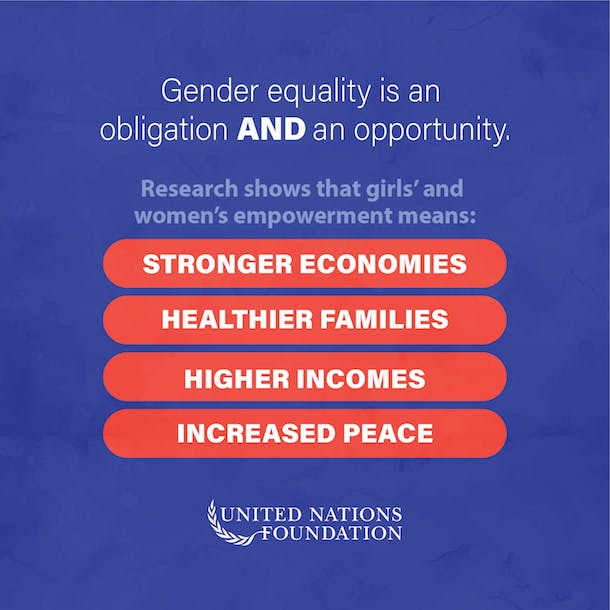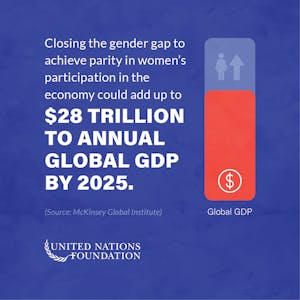
International Women’s Day arrives this year at an important and evolving moment in time, as girls’ and women’s rights and gender equality are resurging in the public consciousness and dialogue in new, powerful, and long overdue ways.
While this attention and conversation is welcome, at the same time, girls and women everywhere continue to endure significant and stubborn challenges. A range of legal, social, health, and safety challenges – and their consequences – while often not widely recognized or understood nonetheless have a high and highly negative impact on girls and women, their families, and communities. For example:
- Complications from pregnancy and childbirth are still a leading cause of death of girls in developing countries.
- Girls account for more than 80 % of all new HIV infections globally among adolescents, and are up to eight times more likely to be living with HIV than their male peers.
- Some 131 million girls are not in school.
- Globally, women perform 2.6 times more unpaid care and domestic work than men.
- About one in three women globally have experienced violence.
- And 214 million women have an unmet need for modern contraception.
While these trends may seem overwhelming, they don’t have to be permanent. Inequality, discrimination, and injustice sustain these problems; rights, empowerment, and better social norms can fix them.
When girls and women can claim their rights, when their agency and ability is respected, when their voices are heard, change can happen. This is a ground truth, and in acknowledgement of it, UN Women is marking International Women’s Day by celebrating the activists who are defending our rights and paving the path for a better future for us all.
Under the theme, “Time is Now: Rural and urban activists transforming women’s lives,” UN Women is urging the global community “to transform the momentum into action, to empower women in all settings, rural and urban, and to celebrate the activists who are working relentlessly to claim women’s rights and realize their full potential.”
For 20 years, since its founding, the UN Foundation has worked with and for girls and women to change the landscape for all of us. From our Girl Up teen advisors who campaign for girls’ rights, to midwives and health care workers on the front lines of improving women’s health and access to contraception, to UN and government leaders installing gender equality on the global agenda, these girls and women are working to make sure the rights of women aren’t relegated to one day, but at the forefront every day.
Addressing the rights and needs of girls and women everywhere has always been – and will continue to be – a key part of our work because it is a human rights imperative and the key to achieving the Sustainable Development Goals and our goals for peace and prosperity.
When a woman is safe, healthy, educated, and empowered, she creates the future she wants, and a ripple effect, advancing healthier and more prosperous communities, societies, and economies.
This is more than nice rhetoric; it’s backed up by research.

- Fulfilling the unmet need for family planning and providing quality maternal and newborn care would reduce maternal deaths by 73 percent and newborn deaths by 80 percent (Source: UAP).
- An additional year of school for girls increases their eventual wages by about 10 percent (Brookings Institution).
- Closing the gender gap to achieve parity in women’s participation in the economy could add up to $28 trillion to annual global GDP by 2025. (McKinsey Global Institute)
That’s why the UN Foundation works with the UN as well as NGOs, the private sector, and government partners to expand access to solutions that support the well-being of women: leadership training, contraception, modern energy services, clean cooking stoves and fuels, education, health care, technology, and more.
As the Secretary-General said in his International Women’s Day message, “Achieving gender equality and empowering women and girls is the unfinished business of our time, and the greatest human rights challenge in our world.” We are ready to take on the unfinished business. Now, and until it’s done. Equal rights for girls and women can’t wait.
The time to act – to stand with and for girls and women – is now.



 View All Blog Posts
View All Blog Posts